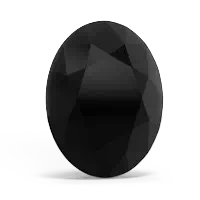
- 7 x 5 mm Oval
- 0.60 carats
- AA Quality
- opaque
- Origin: Brazil
A traditional and beautiful Celtic Knot onyx pendant in , perfect for the special occasion you have coming up, or simply for every day wear. The Celtic Knot style traditionally carries the meaning of infinite love. With its intricate setting, we see no beginning or end, reminding us of the timeless nature of our spirit, and the love we share with each other. It's available as a necklace with a matching 18 inch chain, or purchase just the pendant to place on your own chain. Onyx is known as the gem of confidence and protection and is the birthstone for the month of July.
